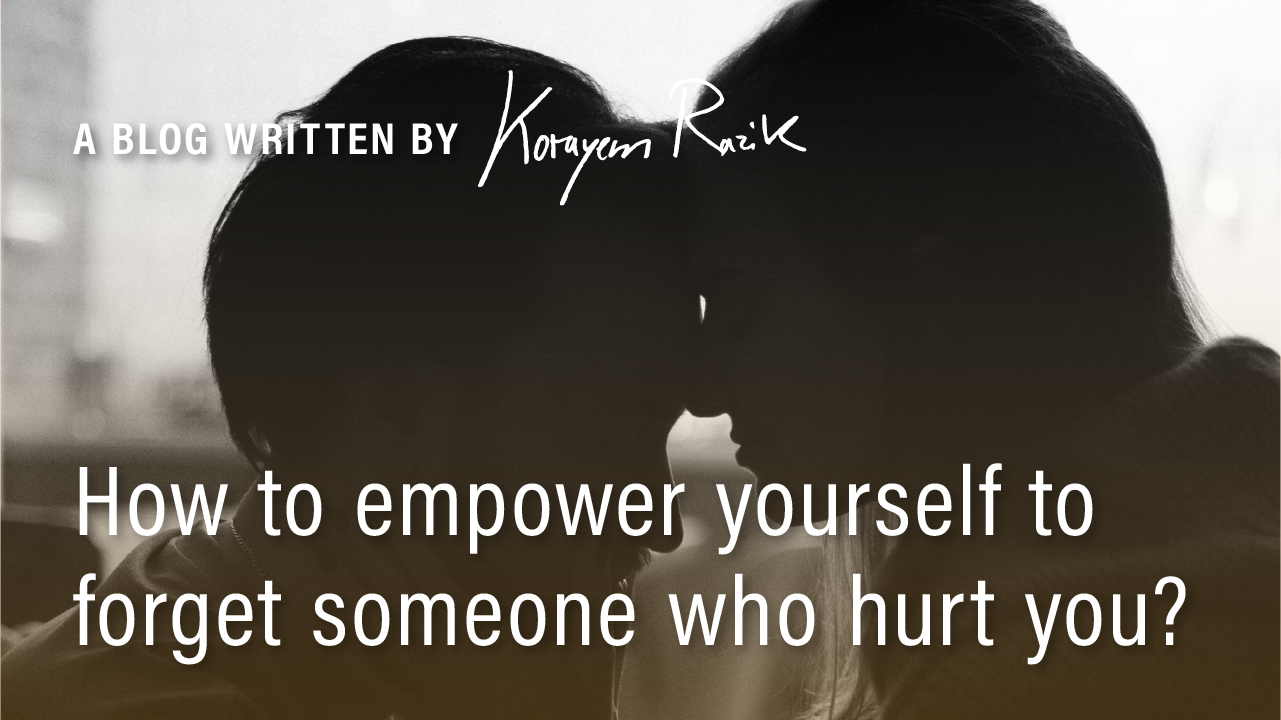Why is nutrition the most important tool which will make you love life and have a happy life?
A healthy diet helps us fight & prevent many diseases such as diabetes. heart disease, stroke, and cancer. It provides all the nutrients your body needs to maintain its bodily functions. This includes carbohydrates, proteins, fats, vitamins, minerals, and water.
To ensure that you provide your body with all the nutrients and phytonutrients it needs, plus we are here showing you which foods will make you happy and help you having more balance. Click here to visit our shop and order our cookbook.
Enjoy a diverse range of foods and eat a varied diet. Choose mainly plant-based foods for this purpose.
- Eat or cook with at least three handfuls of vegetables and two handfuls of fruits daily. They contain many nutrients, fibre, and phytochemicals that fill you up and reduce the risk of conditions such as heart disease.
- Choose wholemeal products. When you compare wheat flour, which is used to make bread, pasta, pizza, etc with wholemeal flour the latter has almost twice as much iron and twice as much fibre, for half the calories. Fibre, which is found in wholemeal products, reduces the risk of some diseases, such as colon cancer, cardiovascular diseases, and type 2 diabetes.
- Use health-promoting fats and avoid “invisible” fats found in processed foods such as pastries and fast food. Healthy fats contain essential fatty acids and vitamin E. Focus on consuming less saturated fatty acids, commonly found in animal foods, and stick to unsaturated fatty acids found in vegetable oils and nuts. These also reduce the risk of cardiovascular diseases.
- Cut back on sugar and salt. Foods and drinks sweetened with sugar usually contain no vital nutrients and a lot of energy. They are not filling and increase the risk of tooth decay, obesity and type 2 diabetes. If you consume a lot of salt. the risk of high blood pressure and cardiovascular diseases increases.
- It is best to drink water/unsweetened teas. The body needs fluids to function, but if you drink beverages that have been sweetened with sugar or are alcoholic, you are not getting any nutrients and can end up more dehydrated.
- Prepare food carefully. Food should be cooked with as little water and fat as possible and only for as long as necessary. Whether frying, grilling or baking you want to avoid burning it. Not only does it not taste great, but burnt food contains harmful, carcinogenic substances. Try as much as possible to avoid deep-frying too
- Eat mindfully and enjoy what you eat. Enjoyment can be promoted by eating slowly, not only can this relax you but it can also help you achieve your desired body weight because the feeling of satiety only occurs 15 to 20 minutes after the first bite.
You can supplement your food choices
with animal foods:
- Milk and dairy products – daily
- Fish – once or twice a week.
- Meat – 300 g-600 g per week.
- Try to include vegetables, fresh herbs, and/or fruits in every meal. These are great as a quick snack or easy meal ingredient because they can be eaten raw.
- Always have healthy snacks such as nuts and dried fruits at hand as they take up little space and are very nutritious. Many bars on the market are made of nuts and dried fruit, just be sure to check the sugar content first. A good place to find these is in an organic food shop.
- Always have a bottle of water with you and drink regularly. You can add lemon or other fruits to help improve its taste if you don’t like plain water.
- Choose vegetable oils instead of animal fats.
- Shop for whole-grain products such as wholewheat bread, pasta, rice, and flour. You should also try other products such as millet, polenta, buckwheat, quinoa, sweet potatoes, lentils, or chickpeas.
- Accustom your palate to less salty foods and use iodized salt when possible.
- Opt for a healthy menu in restaurants. For example, instead of fried food, choose grilled or oven-cooked and re-think your choices to enhance your diet.
- Don’t forget to make time for breakfast. After fasting during the night, the body needs nutrients to kick-start it in the best way for the day ahead.
- If you spend a lot of time in the office, you can get your groceries delivered to your home from certain supermarkets.
- It is a good idea to batch cook to save time during the week.
- Consciously take time to eat and see it as a way of relaxing.
As the above shows, it pays off to switch to a wholesome, healthy diet. This can protect you from diseases such as diabetes, heart disease, stroke, and cancer, providing you with all the essential nutrients and phytochemicals.
A healthy diet is characterised by:
- Lots of vegetables and fruit
- Whole grains
- Pseudo cereals
- Potatoes
- Legumes
- Nuts and
Seeds - Vegetable Oils
- Possibly daily milk and dairy products
- Possibly fish once or twice a week
- Possibly meat(300 to 6000 grams per week)
- Possibly eggs from time to time
Pay attention to the origin of animal products and choose organic products when possible. This is important both for the sake of the animals and the environment.
And here are a few foods that you should definitely have in your kitchen as they will boost your happiness hormones.
1. Ginger
Antioxidants, such as those found in vitamin C, are particularly important for the brain, as it is very susceptible to oxidative damage. Ginger has anti-inflammatory properties, making it a popular remedy for treating inflammation associated with arthritis.
” Ginger improves memory and alertness, acts as a natural antidepressant and calms anxiety.
This anti-inflammatory property is also important for brain health and function, as many brain disorders are associated with chronic brain inflammation: (6, 7, 8, 9)
- Anxiety
- Alzheimer’s
- Dementia
- Depression
- Post-Traumatic Stress Disorder
2. Lemon
As soon as positively charged ions from food arrive in the digestive tract, they react with the negatively charged enzymes present there. However, lemons are negatively charged, meaning they provide energy to the body once they pass through the digestive system. This energy has such a revitalizing effect that the mood automatically rises after enjoying lemons.
Lemon water is therefore particularly recommended for people with a tendency to depression and anxiety.
3. Bananas
Everyone knows bananas are full of potassium, but what you may not know is that they also contain tryptophan, a brain chemical that helps to regulate mood, according to Ara DerMarderosian, University of the Sciences. Bananas are also a good source of B vitamin folate, and having low levels of the vitamin has been linked to depression.
4. Berries
Certain flavors in berries have a chemical similarity to valproic acid, which is a prescription mood-stabilizing drug, according to research conducted by Torrey Pines Institute for Molecular Studies. The
flavonoid anthocyanidin found in berries also reduces inflammation, which has been associated with increased rates of depression. For recipes starring berries, try 18 Totally Creative Strawberry Desserts.
5. Quinoa
It’s with good reason quinoa is having a moment right now. A flavanoid found in quinoa, quercetin, has been shown to have anti-depressant effects, according to a 2010 study in the Journal of Neuropharmacology.
6. Dark Chocolate
Choc-o-holics, rejoice! Dark chocolate is a good source of antioxidants, but it’s also been found to reduce the stress hormone cortisol, according to a study in the Journal of Proteome Research. Dark chocolate is rich in antioxidants which means that it boosts mood naturally and the presence of N-acylethanolamine chemicals stimulates the brain to release endorphins.
7. Turmeric
It’s time to turn up the heat. The yellow spice, most known for its use in East Asian cuisine, contains curcumin, which enhances mood and fights depression, according to ethnobotanist Chris Kilham.
8. Apples
An apple a day really does keep the doctor away. Eating fruits and vegetables, like apples, produces a calming effect, creates more energy, and increases overall happiness, according to the British Journal of Health Psychology.
9. Green Tea
A Japanese study found that psychological stress was lower in individuals who drank five or more cups of green tea per day. (But I mean, that’s a lot of green tea).
10. Avocado
Avocados are packed with vitamin B3, a serotonin-boosting vitamin and they also contain omega-3 fatty acids which have been shown to support brain health and mood regulation.
11. Cherry tomatoes
Tomatoes contain the phytonutrient lycopene in their skins and due to the increased amount of surface area on cherry tomatoes (as opposed to larger varieties), these provide a more concentrated amount of lycopene which prevents the build-up of pro-inflammatory compounds that researchers have linked to depression.
12. Nuts and seeds
All nuts and seeds contain tryptophan, a precursor for serotonin and they also deliver antioxidants, which has been shown to lower the risk of depression.
13. Fruits
Pineapple, bananas, kiwi and plums all contain high amounts of serotonin, giving us a natural mood boost.
14. Salmon
Mood boosters include fish that are high in omega-3 fatty acids. So herring, tuna or salmon. Because the body cannot produce essential fatty acids itself, they must be supplied through food. Studies have found that omega-3 fatty acids can alleviate the symptoms of depression because they affect the production of the feel-good hormones serotonin and dopamine. Salmon is rich in tryptophan and omega-3 fatty acids, EPA and DHA as well as vitamin B12 and B6, so it helps the body produce serotonin, giving us a mood boost and reduce inflammation, protecting the nerves in our brain.
15. Spinach
Spinach contains magnesium, which helps boost energy and phenylethylamine, which can reduce monoamine oxidase break down in the same way that old-fashioned pre-Prozac anti-depressants did.
16. And of course … Water
Water is important to keep our body and mind hydrated, aiding their functionality, so it is advisable to consume 2 litres of water per day, either directly or through the food we eat and drink. All of the above could be great options for your lunch break (perhaps with the exception of salmon, you might not be very popular in the office that day!) So, what small changes could you make to your diet this week to help you to boost those Happy Hormones?
17. Lentils
Lentils contain tyrosine, an essential amino acid that is required for the formation of many hormones and messenger substances in our body and has an extremely positive effect on our well-being! lentals Thanks to the high fiber content, lentils will promote a functioning, happy digestive system that leaves you feeling satisfied—and ahem, regular, according to Poon. “A diet that is rich in fiber can help you
maintain bowel health, lower cholesterol, control blood sugar, lose weight, and prevent disease.
18. Dates
There is also a lot of tryptophan in dates, which also contain numerous minerals, vitamins and fiber!
19. Figs
Similar to dates, figs are also ideal mood enhancers. Tryptophan, vitamins, minerals and fiber give the body energy and a good dose of happiness!
20. Potatoes
Eating potatoes can also have a positive effect on serotonin levels and also increase our resistance to stress!
21. Chili
With its spiciness, chili helps the body to release endorphins, making us feel happier and more exhilarated at the same time!
22. Saffron
In addition to its color, saffron was valued above all for its medicinal properties. Anti-inflammatory, analgesic, antioxidant and mood-enhancing – these attributes promised relief or healing for many ailments and diseases.
23. Aubergine
Relieves depression. Erotonin is a chemical that causes imbalance in moods, leading to depression. But eggplant contains a compound called scopoletin that regulates serotonin levels in the brain, reducing the feeling of anxiety and other symptoms of depression. It also contains vitamin B often called “antistress” vitamins group that improves the body’s ability to withstand stress. Its thiamin content also gives your mood a boost and fights against depression and anxiety.
24. Chickpeas
A recent research conducted by Israeli scientists, leads to the conclusion that the chickpea was cultivation because of it’s special effect on mood. In a way, chickpeas are the ancestors of Prozac. It is a known fact that chickpeas, as well as other legumes, are rich in Tryptophan, an amino acid which is a precursor of serotonin. The latter is a neurotransmitter strongly connected to well being and mood. Anxiety and depression, for instance, are known to correlate with serotonin deficiency.
Most modern anti-depressant medicine, works by increasing the amount of serotonin in the brain, and that includes the highly popular SSRI drugs (Selective serotonin reuptake inhibitors. Drugs such as Prozac, Seroxat, Cipralex etc.). So yes, a tryptophan rich diet may improve mood (up to some point) – and the scientist claim that this is why chickpeas became so popular in the ancient world.
Chickpeas and tahini, the major ingredients of hummus, contain essential amino acids which has a very similar effect to that of anti- depressants. Don’t be surprised if one day in the near future your doctor will prescribe you some hummus.
25. Pomegranate
Pomegranate is packed with powerful antioxidants that are essential for keeping our bodies healthy. One of the antioxidants it contains is called phytochemical compounds. This particular compound positively affects the estrogen receptors and the serotonin receptors in the brain. The phytochemicals actually stimulate the activity of these two receptors, which in turn leads to positive feelings toward life and self, thereby reducing the feelings of hopelessness or depression. What better way to control depression than with a natural substance? The natural tannins and antioxidants in pomegranates are natural detoxifiers too, which can help the body feel better overall and that alone can help boost
mood and alleviate depression.
26. Oatmeal
Oatmeal naturally changes your brain chemistry by creating your body’s feel-good chemical, serotonin, the mood hormone we just mentioned. “It will kick serotonin into high gear and help combat pain, decrease appetite, and produce calm or sleep,”
27. Chia seed
Tryptophan is an essential amino acid that helps boost your mood and promote restful sleep. The problem is that it isn’t naturally produced by our bodies; you need to absorb it from whole food sources. A great source is chia seeds. Chia seeds also get brownie points for being high in fiber, meaning
that even if you consume them in something sweet—like chia pudding—they will be slowly absorbed into the bloodstream, helping to prevent blood sugar crashes. Plus, the fiber keeps you full longer.
28. Rosemary
Rosemary improves brain performance and is good for memory and concentration. This stimulating function also improves our mood and makes us more awake. Recent studies* even indicate that rosemary can reduce anxiety and symptoms of depression.
29. Tomatoes
The riper a tomato is, the more lycopene it contains – an active ingredient that is said to counteract prostate cancer. In addition, tomatoes promote the production of the hormone serotonin – a neurotransmitter that is essential for our good mood. Too little serotonin triggers depression in our
brain.
I put a wonderful cookbook together with healthy meals which I cooked and tried. You will also find a lot of tips and healthy delicious recipes which you will enjoy cooking and eating. You will feel after consuming them very light and energized. You will start a real healthy lifestyle. Click here to visit our shop and order our cookbook.












